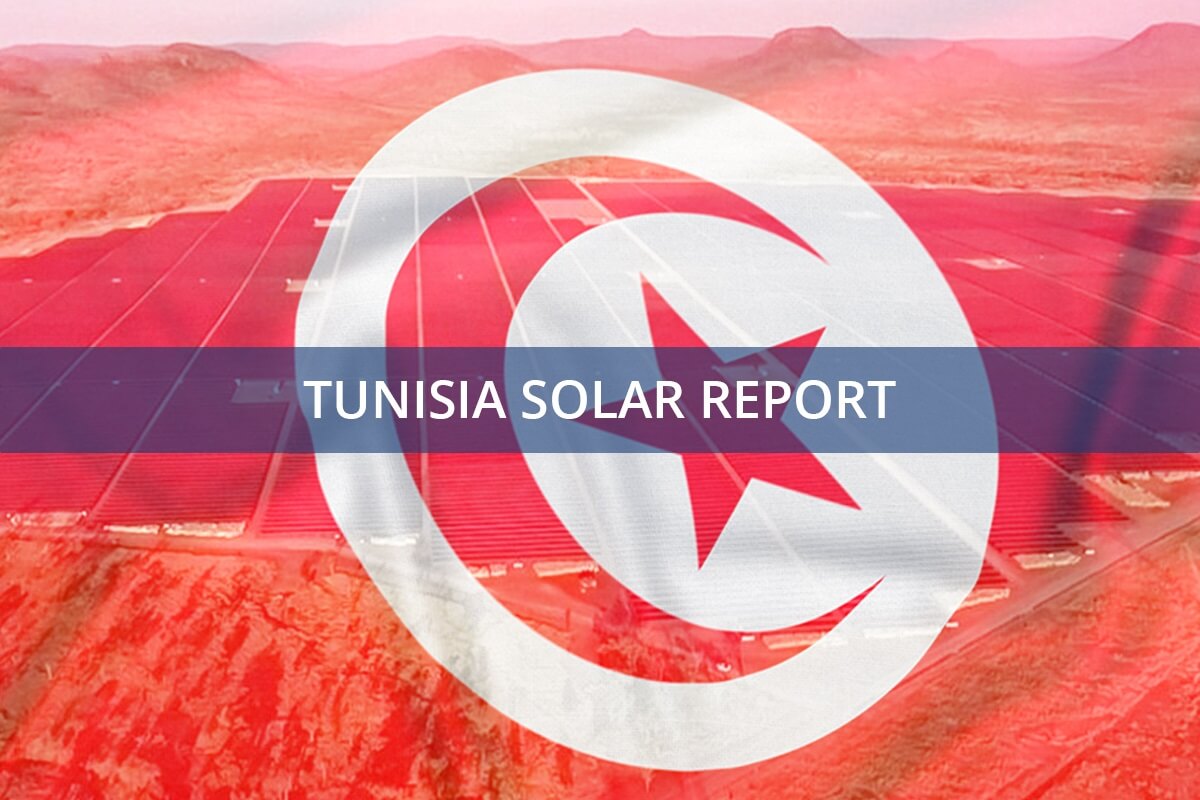Tunisia has advanced its renewable energy goals by awarding contracts for four solar projects totaling 500 MW as part of its 1.7 GW solar project tender. These projects — including a 198 MW installation and three 100 MW solar farms — will be developed by Qair International, Scatec ASA, and Voltalia SA, with bids as low as EUR 0.029 per kWh.
1.7GW Solar Project Tender
Tunisia has taken a major step forward in renewable energy development by awarding contracts for four solar projects with a total capacity of 500 MW. This initiative is part of the first phase of the country’s ambitious 1.7 GW solar project tender. The Ministry of Industry, Mines, and Energy announced the decision to award contracts for solar projects. It emphasized the highly competitive pricing, with the lowest bid recorded at EUR 0.029 (USD 0.030) per kWh.
The awarded projects include three solar farms, each with a capacity of 100 MW. One will be developed by Qair International SAS in El Ksar, located in the Gafsa governorate. The second project — led by Scatec ASA — will be constructed in Mezzouna, Sidi Bouzid. The third will be built in Menzel Habib, Gabes, by Voltalia SA.
Additionally, a larger 198 MW solar installation will be developed by Qair International at the El Khobna site in Sidi Bouzid. These projects are strategically distributed across different regions to enhance energy access and resilience.
Operational Timelines and Economic Benefits
The solar plants are expected to become operational by 2027. Once completed, they will generate approximately 1,000 GWh of electricity annually, thus contributing around 5% of Tunisia’s national electricity production.
Beyond meeting energy demands, the projects will provide significant economic benefits. They are expected to cut natural gas consumption by 250,000 tonnes per year. This reduction is estimated to save around USD 125 million annually. These savings underscore the cost-effectiveness and sustainability of solar energy as a key component of Tunisia’s energy mix.
Tunisia’s renewable energy strategy extends beyond this 500 MW initiative. The government has already awarded contracts for five photovoltaic solar projects with a combined capacity of 500 MW. The projects are situated in Tataouine, Tozeur, Sidi Bouzid, Kairouan, and Gafsa. They are planned to begin operations starting in 2025.
Additionally, Tunisia is diversifying its renewable energy portfolio with plans to incorporate wind energy. The Ministry of Industry, Mines, and Energy has announced plans to invite bids for two wind projects. Each project will have a capacity of 75 MW, with bids expected by March 2025.
Growing Solar Capacity
According to the International Renewable Energy Agency (IRENA), Tunisia’s solar capacity reached 506 MW by the end of 2023. The newly approved 500 MW will nearly double this figure, significantly bolstering the country’s renewable energy infrastructure.
Tunisia is also preparing for future expansions. In October 2024, the government launched a new solar project tender aimed at procuring an additional 200 MW of capacity. Developers have until January 15, 2025 to submit their bids.
Tunisia’s focus on renewable energy reflects its commitment to combating climate change, reducing greenhouse gas emissions, and creating a sustainable energy framework. Its solar project tenders demonstrate a proactive approach to harnessing abundant solar resources while promoting energy independence and economic growth. As the country advances its renewable energy initiatives, it sets an example for the region. It showcases the feasibility of achieving ambitious climate goals through strategic planning, technological innovation, and international collaboration.
The 500 MW solar project tender is more than just an infrastructure milestone for Tunisia. It represents a vision for a sustainable future, where renewable energy plays a central role in national development. By focusing on solar energy and expanding its renewable energy portfolio, Tunisia is laying the groundwork for long-term environmental and economic benefits, thus setting a benchmark for other nations in the region.

